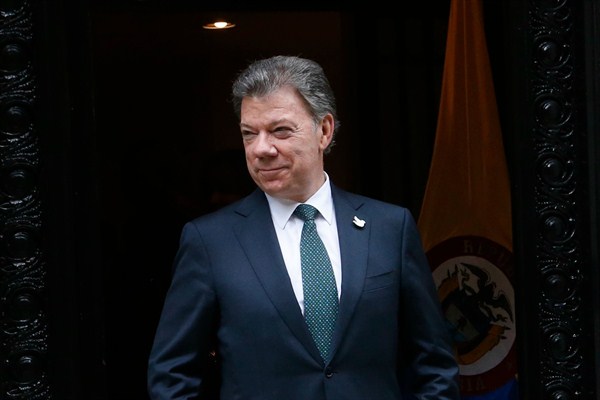On June 15, Juan Manuel Santos emerged as the victor of a close and contentious battle for the Colombian presidency. He ran on a campaign promise to continue the peace talks he started with the country’s main leftist guerrilla army, the Revolutionary Armed Forces of Colombia (FARC), in November 2012. His re-election, Santos declared, was proof that Colombian voters had given him a mandate for peace and wanted to complete the process. Santos’ second-round victory relied in large part on the support he received from most of the established segments of Colombia’s political left, which, though historically not a major electoral player, has now moved into the spotlight.
Leading them is Polo Democratico Alternativo (the Alternative Democratic Pole), which formed in 2005 with the alliance of two leftist political parties opposed to the security policies and neoliberal economic reforms of then-President Alvaro Uribe’s administration. Polo Democratico Alternativo had its greatest electoral success in 2006, when it came in second in the presidential race and won nine seats in the Chamber of Representatives and 11 in the Senate, along with mayoral elections in Colombia’s three largest cities, including the capital, Bogota, a major political prize. But the party’s power waned in subsequent elections amid internal disputes. Ahead of the 2010 congressional election, a faction of Polo Democratico Alternativo broke off and joined the rival Green Party.
It is not difficult to understand why leftist activists, politicians and trade unionists supported the center-right Santos in the second round over his main opponent, Oscar Ivan Zuluaga, a more conservative candidate who initially proclaimed that he would freeze the FARC peace talks and whom Uribe vigorously backed. Although some leftist voters supported Santos reluctantly as the lesser of two evils, others saw him as the better choice for ending the war and ushering in an era of greater respect for democracy and human rights, with a renewed focus on social and economic justice.

